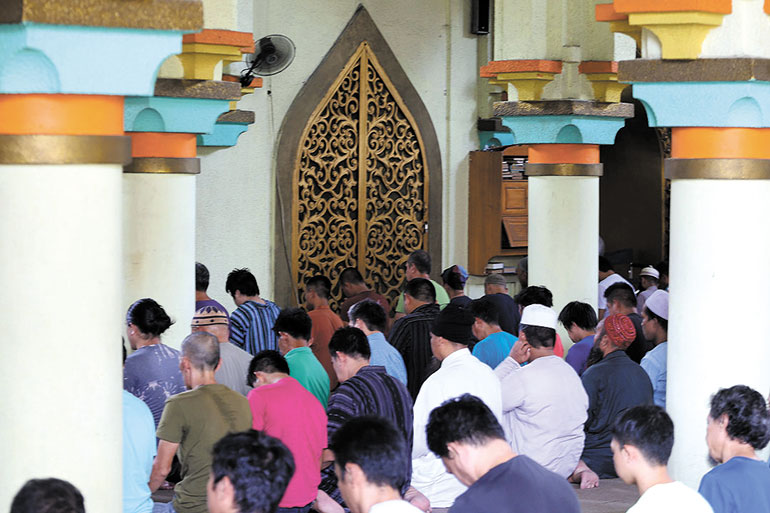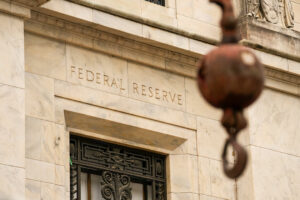
Opportunities abound in Islamic banking

By Bjorn Biel M. Beltran, Special Features and Content Assistant Editor
Islamic banking is quietly becoming a major part of the financial services industry worldwide. According to a report by international financial data and market services firm LSEG and the Islamic Corporation for the Development of Private Sector (ICD) of the Islamic Development Bank Group, Islamic finance sector reached $4.9 trillion in assets in 2023.
The Islamic Finance Development Indicator (IFDI) report assesses Islamic banks’ performance in 136 countries around the world across five metrics: financial performance, governance, knowledge, sustainability, and awareness.
“Malaysia, Saudi Arabia and the United Arab Emirates top this year’s IFDI as they continue to maintain the development of their local industries, which are supported by enabling ecosystems and infrastructure,” the report said.
“At the same time, less developed Islamic finance jurisdictions Kenya, Malawi, the Philippines and Tanzania posted notable milestones that advanced the progress of their own industries.”
Indeed, the Philippines has slowly been making strides in developing the Islamic financial sector since the passing of Republic Act No. 11439, or the Islamic Banking Law of the Philippines, in 2019.
It was enacted to provide a clear regulatory framework for Islamic banking in the country, supporting financial inclusion particularly for Muslim Filipinos and aligning the Philippines with global Islamic finance standards. Prior to this law, the sector was limited to the state-owned Al-Amanah Islamic Investment Bank, initially established as the Philippine Amanah Bank in the 1970s, with no comprehensive system for new entrants.
Before the law was passed, the lack of a comprehensive legal framework was a major obstacle that hindered the growth of the industry and prevented the entry of new players. The new law addresses this by providing guidelines for the establishment of new Islamic banks and Islamic banking units within conventional banks.
“Since passage of the Islamic Banking Law, the industry has seen progress with Maybank Philippines, Inc. (MPI) being the first private bank to launch an Islamic banking unit,” Maybank Philippines said in an interview.
“This milestone demonstrates that the regulatory framework now enables commercial banks in offering Shari’ah-compliant products. MPI’s entry has set the benchmark for expanding Islamic banking services nationwide.”
Islamic banking differs from conventional banking as it operates in accordance with Shari’ah law, the moral and religious principles of Islam. Its defining feature is the prohibition of interest (riba). Instead of earning money through interest, Islamic banks structure transactions around profit-and-loss sharing, trade, and asset-backed financing.

Supporting the growth of Islamic finance
Recently, the Bangko Sentral ng Pilipinas (BSP) expressed its intent to support the sector by easing regulations and taking suggestions from the industry to amend the basic guidelines in establishing Islamic banks and Islamic banking units.
According to BSP data, 29% of the cities and towns in the Philippines remain unbanked, with the Bangsamoro Autonomous Region in Muslim Mindanao the most unbanked region. This initiative aims to promote inclusive finance in the region by making financial services that conform to Islamic faith be available as an alternative to existing conventional banking facilities.
In addition, the Philippine Deposit Insurance Corp. (PDIC) announced the official inclusion of Islamic banks and Islamic banking units in the Philippine deposit insurance system last May, following amendments to Republic Act No. 3591, or the PDIC Charter.
Under the new framework, deposits in these banks are insured in the same manner as conventional deposits up to the maximum deposit insurance coverage (MDIC) of P1 million per depositor, per bank.
“The expansion of deposit insurance to include Islamic deposits guarantees that depositors of Islamic banks have the same level of protection as those of conventional banks, thereby fostering confidence in the Islamic banking system. This is a welcome development that also aligns with the National Government’s pursuit of promoting financial inclusion and strengthening of the Islamic banking sector in the country as this encourages more individuals and businesses to save in banks,” PDIC President and CEO Roberto B. Tan said.
These developments signal the blossoming of new opportunities in the sector, especially for commercial banks with Islamic banking units like Maybank Philippines.
“The BSP framework has provided the stability and confidence needed for institutions like MPI to operationalize Islamic banking by setting clear standards on licensing, Shari’ah governance, and compliance,” Maybank Philippines said.
“Beyond banking, this framework has also laid the foundation for the introduction of takaful (Islamic insurance or Shari’ah-compliant insurance system) in the country. This enabled MPI to successfully launch its Islamic banking unit, while its sister company Etiqa Philippines, became one of the first insurance companies to secure license as a takaful operator,” it added.
There is a long way to go, however, if the Islamic banking sector were to become as competitive as conventional banks. Maybank noted that awareness about Islamic finance is a challenge, even within Muslim communities themselves.
“For MPI, the main challenge has been market awareness or financial literacy. One of the main challenges is that awareness and understanding of Islamic finance within Muslim communities remain limited, with many not fully familiar with how Shari’ah-compliant products differ from conventional banking,” they said.
“Beyond this, there is also a broader perception that Islamic banking is a service exclusively for Muslims, when in fact, it can be availed by anyone looking for ethical, inclusive and sustainable banking.”
The bank further pointed out that policy enhancements remain necessary to achieve regional competitiveness as the primary gap in the country is the lack of Shari’ah-compliant investment outlets and Islamic financing products to deepen the financial ecosystem. The Philippines also lacks the presence of a central Shari’ah Board, which could further strengthen governance and ensure consistency across the financial industry sector.
“MPI is well-positioned to respond and support these opportunities, having laid the groundwork through its Islamic banking unit and leveraging on the expertise and support of the Maybank Group, which also owns Maybank Islamic Berhad, one of the top five largest Islamic banks globally,” the lender said.
However, given that their Islamic banking offerings are still in its early stage of market rollout with only five Islamic banking units, the bank noted that accessibility is more limited as compared to its conventional offerings. To address this, Maybank is leveraging on its nationwide branch network and digital partnership to make digital Islamic banking products more accessible.
“MPI envisions Islamic banking evolving from a niche offering into a mainstream financial service over the next decade. With continued regulatory support and growing public awareness, more banks are expected to establish Islamic banking windows in the Philippines, complemented by the development of Islamic financing, sukuk, takaful, and other Islamic products,” Maybank Philippines said.
“MPI intends to be at the forefront of this growth by continuously expanding reach, innovating Islamic products, and supporting the development of the Halal industry in the Philippines that will position the country as an emerging hub for Islamic finance in the ASEAN region.”



